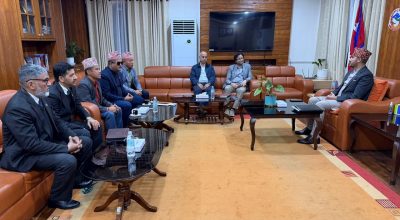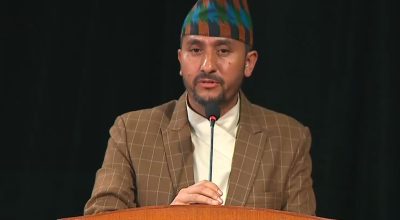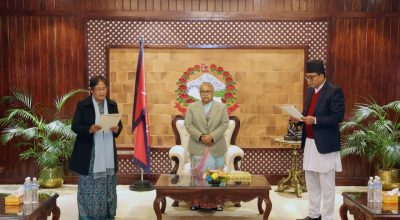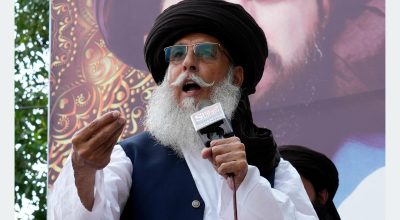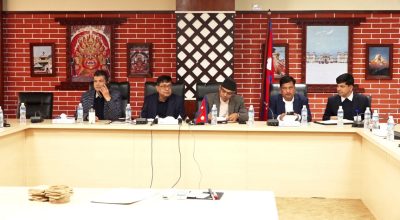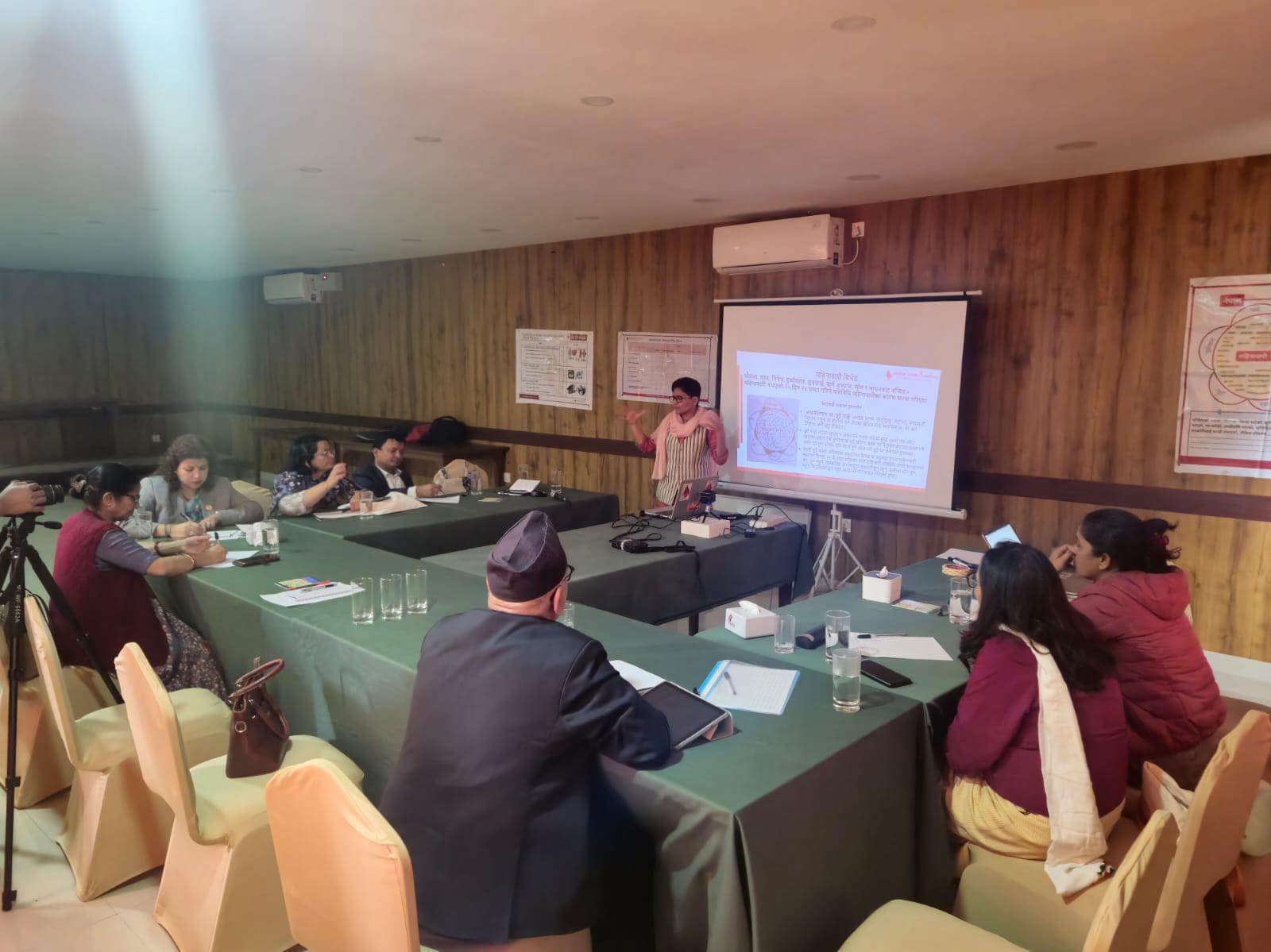
Kathmandu, April 8: A legislator representing the Sudurpashchim Province in the National Assembly (NA) was disturbed for having to witness a family from Gandaki Province practicing a severe form of menstrual discrimination in the federal capital, Kathmandu.
The lawmaker herself, along with other female members of her family, faces no restrictions in following their daily routines during menstruation. However, to her surprise, the family living next door in Kathmandu went so far as to forbid menstruating women from even touching the floor carpet.
At that point, she felt puzzled, starting to question herself about the ‘justification’ of term ‘Chhaupadi’ that was largely used at the national and international level to talk about the menstrual discrimination in the context of Nepal.
The term that simply means the timing of menstruation or duration of menstruation in the local Achhami language in the Sudurpashim Province has been ‘misinterpreted’ to paint a pathetic picture of the Sudurpashim Province in a way that menstrual discriminations are just prevalent in the Province and the rest of the country is free from such discriminations.
“This is a discriminatory approach towards the Sudurpashim,” she said, adding that the prevailing law has also supported this perspective. She is none other than Madan Kumari Shah (Garima) who on March 21 presented the Resolution Motion to End Menstrual Discriminations for Establishing the Dignified Menstruation. To its historic move, the NA had endorsed the document unopposed.
Taking the NA-endorsed resolution one step ahead, MPs on Tuesday sat for a ‘Policy Dialogue on Dignified Menstruation’ to further explore ways among themselves to find the destination envisaged by the document. During the discussion, lawmaker Shah stressed, “It is urgent to define and redefine the menstrual discriminations in a broader and holistic way.”
Maya Prasad Sharma, President of the Public Policy and Delegated Legislation Committee, who was among the lawmakers contributing to the document’s unanimous endorsement stated, “It is not necessary for us to adhere to the discriminatory practices imposed by society over a natural and biological process.”
He added that such biased traditions have no place in a civilized society, and that efforts must be made both at the individual and institutional levels to break the silence and ignorance surrounding menstruation.
As the President of the Committee, he also pledged to do his best to review the implementation of the Motion and take necessary measures to address the issue.
The lawmakers present at the event expressed the view that the Resolution had come at a time when the State had largely overlooked menstrual discrimination in the definition of, and response to, gender-based violence. They believed that the Resolution would help lay the foundation for addressing this gap and bring about a change in both mindsets and actions.
President of the Committee on Development, Economic Affairs, and Good Governance, Kamala Panta, said that menstrual discrimination is a serious issue as it directly violates at least 14 fundamental rights guaranteed by the Constitution. The Parliament and the government have yet to fully recognise the depth and gravity of this issue,” she said, pledging to raise the matter through broader discussions with a rights-based and gender-sensitive perspective.
According to her, the document represents the collective resolution of the entire National Assembly (NA), and all committees under it are expected to play a coordinating role in ensuring its effective implementation. Sumitra BC, one of the lawmakers who seconded the Resolution Motion, said that menstrual discrimination is a violation of human rights and a form of gender-based violence.
Now, the relevant committees are expected to monitor whether the government delivers on its commitments and implements the directives accordingly,” she added. Bagmati Province lawmaker Sona Pariyar said that menstrual discrimination and caste-based discrimination cannot be justified under any circumstances. She called for an effective role of the Parliament, along with the active engagement of the youth, to dismantle such discrimination.
She also expressed her commitment to consider the introduction of a similar resolution document in the Bagmati Provincial Assembly. Former Madhesh Province member Manju Yadav shared with the forum that menstrual discrimination also exists in the Madhesh region, though its forms and practices may differ from other areas.
Executive Vice-Chair of the National Youth Council of Nepal, Surendra Basnet, emphasized the need for sensitivity in the use of terminology while addressing menstrual discrimination. He promised to fully utilize his remaining term at the Council to incorporate the issues of dignified menstruation in its deliveries including in the Youth Vision 2025-2035.
Dr Radha Paudel, the propounder of the principle of dignified menstruation said, “ The dignified menstruation which is a feminist, transformative and holistic approach is totally a decolonized idea and initiation.” According to her, any forms of menstrual discriminations: either visible or less visible or intense or moderate, lie on the (mis) belief that menstrual blood is ‘impure’, ‘dirty’ and menstruators are not a complete human being.
This discrimination snatches away the confidence of the menstruators, forming unequal power relations and patriarchy between the menstruators and non-menstruators throughout the life cycle. With the upper house owing up the agenda of dignified menstruation, it has been the “assets” of the parliament, Dr Paudel said , expressing her hope that the parliament will deliver on its resolution.
It may be noted that following the endorsement of the Motion, NA Chair Narayan Prasad Dahal had directed the government to implement it and the relevant committees were assigned to monitor the implementation status of the document.
The Resolution Motion that had been registered in the NA on January 31 and passed on March 21 was seconded by Sumitra BC, Bishnu Kumari Sapkota, Ganga Belbase, Puja Chaudhary and Dr Anjan Shakya.#nepal #rss






